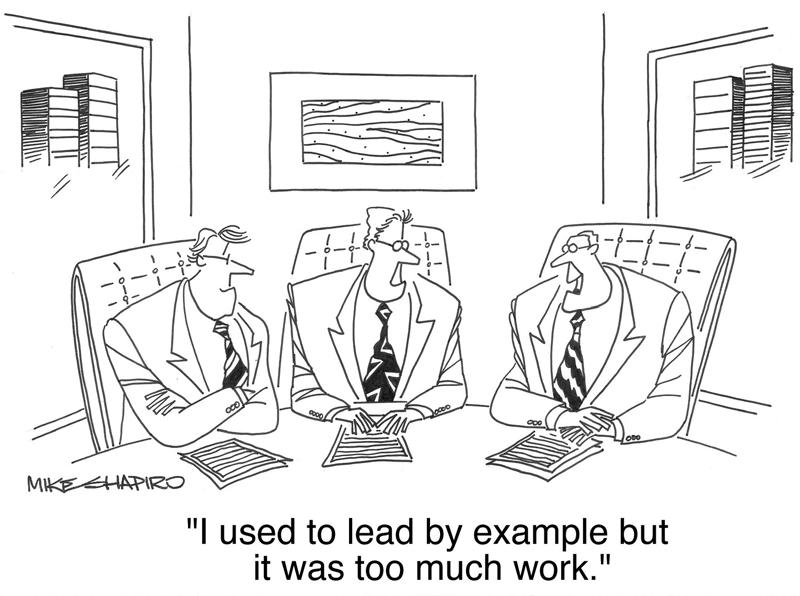
6 minute read
Soundbites
If the shoe fits
When Brian Scharfstein interviewed for a job in real estate his prospective boss asked to see his daytimer. He didn’t have one, so the boss waited while Scharfstein ran out to buy one. When he returned, the boss told him to open it up and mark down when he planned to take vacation. “I hadn’t even started work yet!” Scharfstein remembers thinking. Then the boss said, “I want you to block off time when you’re going to put away your pager and take a break, because if you don’t have something to work towards, you can’t work for me.”
From that day on, Scharfstein paid attention to worklife balance.
Today, as owner of Canadian Footwear, a leading shoe enterprise, he pays attention to the inner balance of his 100 employees.
Each year he takes time with each employee, off site, to talk about personal balance. “We don’t talk about their performance or their business day — it’s a personal conversation about life balance. How are things at home? When you get up in the morning, do you look forward to coming to work? Where do you want to be in five or 10 years?”
He believes it’s important for owners to meet with employees on an individual basis to understand if the quality of their life is matching the quality of their work.
“Because we’re very focused on lifestyle and balance,” he says, “it is just as essential that our people believe we are the right fit for them as they are for us. When they go home at the end of the day, they need to feel good about where they’ve been.” (Winnipeg Free Press)
Mark of ethics
If you are not doing something substantial for the poor, you are not leading an ethical life. — Peter Stenger, Princeton ethicist
Social enterprise
The power of social enterprise is gaining ground in Canada, writes Simon Avery in the Globe & Mail Report on Business.
“MBA schools are minting a new class of graduates who want to use their business acumen to address social issues,” he writes. “A new type of investor is looking for both a return on capital and impact on society’s progress. And both large corporations and traditional charities are re-thinking their strategies around the idea.”
Avery describes social enterprises as “organizations that make money and deliver social or environmental benefits. They may be not-for-profits engaging in for-profit activity to supplement the donations they receive, or profit-making companies pursuing not-forprofit community or environmental work.”
Bag lady
For 15 years she bagged groceries in the same store. But she was more than an ordinary bagger. As the groceries slid down the counter to her she made a point to pray for each customer, and often inquired about their well-being. She saw her six feet of counter space as her personal mission field. Shoppers came to appreciate the extra attention she gave them, and sometimes her aisle became clogged because customers made a point of choosing her checkout line. When she died, shortly after retiring, her funeral was jammed with people, many of whom told stories of how she had touched their lives. This woman had made a commitment to bring her faith to work. She said, “I’m going to claim the six feet that God has given me in my life. I’m going to reclaim those six feet for Jesus Christ and I’m going to incarnate his ministry right here.” — Businessman Don Flow, quoted in Why Business Matters to God by Jeff Van Duzer
Time off
On one of my trips I bought a travel alarm clock for a few nights in the bush. I didn’t shop around much, thinking clock technology had advanced quite far in the last several centuries. I was wrong,
it turned out. The clock ticked so loudly in the pure silence of the tent that it kept people from falling asleep. In disgust, I threw it out. I wondered afterward, why would anyone bother to make a clock like that? If it had been my company, I think a burst of common sense might have prompted me to try the product myself before putting it on the market. It would not have been a huge personal imposition, as part of my own R & D, not to mention due diligence, to put it by my own bedside one night and see how (or if) it worked. I think I would ask the same question of everything I produced — “Would I buy this product?” It occurred to me that the basic issue was more than simple product development or customer service. In fact, it tapped into some of the great strategies of human interaction — cultural relationships and peacemaking, for starters. It always pays to walk in the other person’s shoes, to understand the other’s point of view. That’s good theology, I think, and good business. — Bartholomew Gideon
Pressing on
In spite of everything, I shall rise again: I will take up my pencil, which I have forsaken in my great discouragement, and I will go on with my drawing. — Vincent Van Gogh
The adman speaks
Never write an advertisement you wouldn’t want your own family to read. You wouldn’t tell lies to your own wife. Don’t tell them to mine. Do as you would be done by. If you tell lies about a product, you will be found out — either by the government, which will prosecute you, or by the consumer, who will punish you by not buying your product a second time. Good products can be sold by honest advertising. If you don’t think the product is good, you have no business advertising it. — Advertising executive David Ogilvy
Lay what?
In spite of all protestations to the contrary, we doggedly continue to think of lay ministry as laypeople filling the traditional roles of clergy in the church rather than as laypeople fulfilling their own callings in the world. — Garret Keizer in Christian Century
5 p.m. dad
Sabbath time has been a social principle from the days of Moses. It is ironic then that something won with much difficulty in ancient Egypt is today given away so easily. Work is becoming an intoxicant.... A professional can easily put in nearly 54 hours a week on the job. An owner of a small business is at work for almost 60 hours a week. The five o’clock dad is an endangered species. Of fathers with children under age six, almost 40 percent are on the job more than 50 hours a week. — William Droel in Full-Time Christians
Debt to the past
Here is one spiritual exercise that each of us needs to try every day. Take anything in your life — a musical instrument, a computer, a car, a piece of fruit that sits in your home but was grown far away, a television, a cell phone, a book. Now try to imagine all the steps that needed to happen between the moment that human beings were created and the moment you were able to have this thing in your life. If you ask what knowledge those who brought this object into your life had to have, what those who developed that knowledge had to learn from previous people who developed their knowledge, you will quickly be overwhelmed by the amount of cooperation through thousands of years that made all the things that populate your daily life possible. Try this exercise with a different object or aspect of your life every day and you’ll soon see how much each of us is a beneficiary of the goodness and cooperation of past generations. — Michael Lerner in Spirit Matters
Blah, blah, blah
Words, words, words. Looking over the history of corporate social responsibility, I can see it has consisted of 95 percent rhetoric and 5 percent action. Companies are adept at drawing up high-sounding mission statements. Changing the way they do business? That’s something else. — Corporate social responsibility expert Milt Moskowitz
Shook-up church
The church is at its best when the building is empty and the “salt” is out of the shaker penetrating and seasoning the workplaces of society. — Richard Halverson






